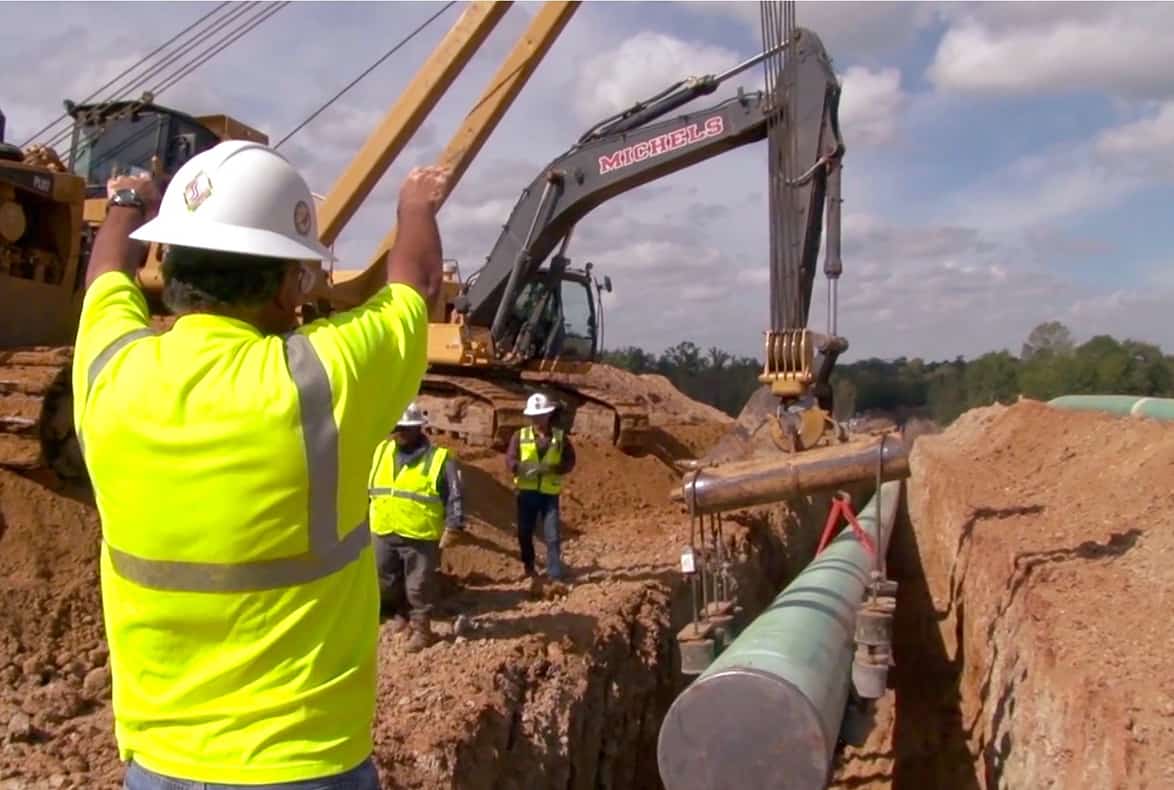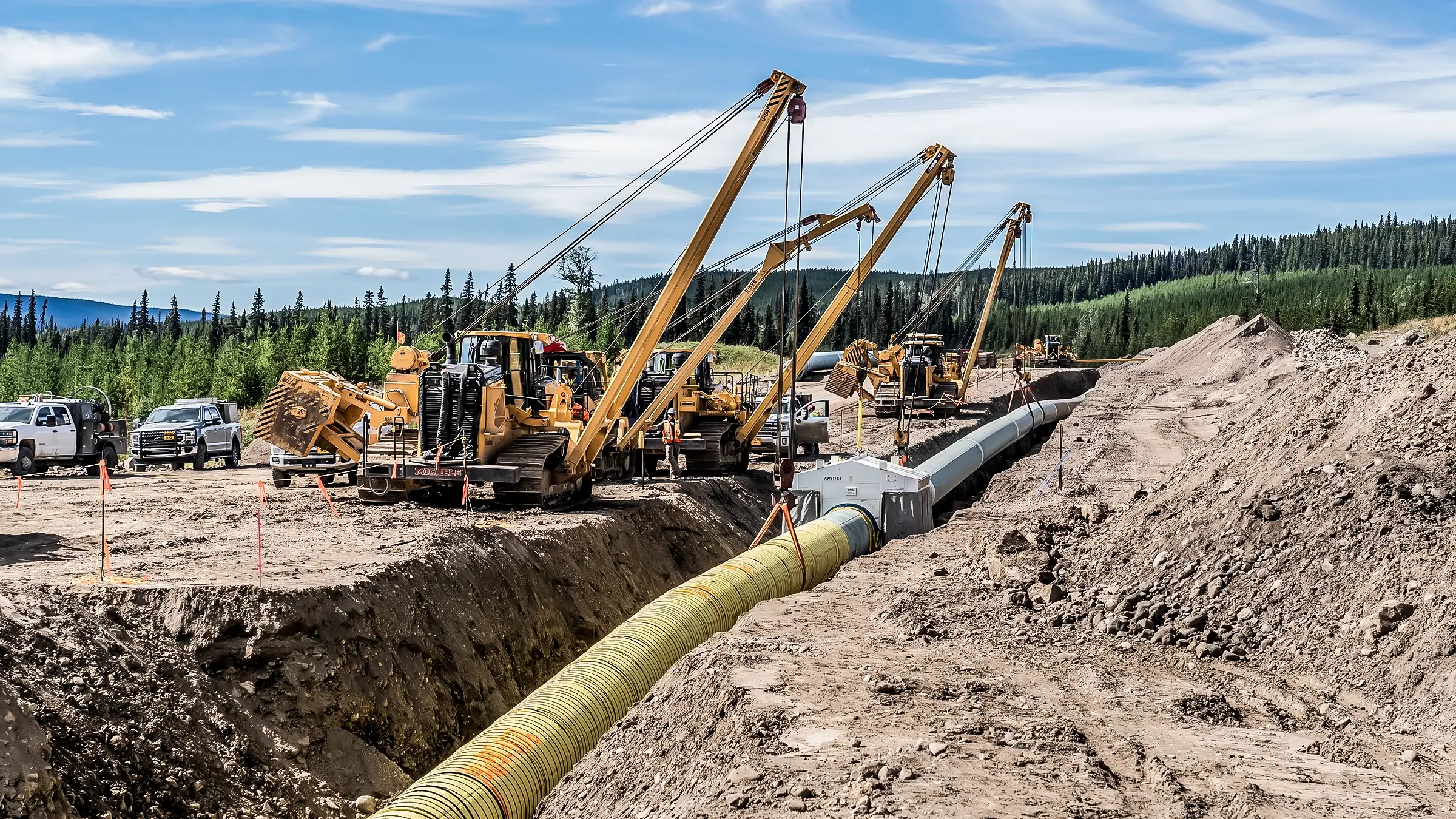A Comprehensive Overview to Understanding Pipes and Their Role in Building
Pipes are necessary parts in building, serving crucial functions in water, gas, and waste monitoring. Their choice and application can considerably influence a structure's effectiveness and safety. Different materials, such as PVC, copper, and PEX, use unique benefits matched to specific needs (Creek Pipe Company). Comprehending these factors is vital for any building job. As one checks out the details of pipes, the implications for compliance and public wellness come to be progressively apparent
The Importance of Piping in Building
Pipes work as essential conduits in construction, helping with the motion of water, gas, and waste throughout structures and framework. Their duty prolongs beyond mere transport; they are crucial for guaranteeing the capability and safety of commercial and household environments. Appropriately set up pipes add to the effective circulation of sources, making it possible for daily activities such as cooking, showering, and heating. Pipelines play a critical function in waste monitoring, guaranteeing that sewer and wastewater are effectively eliminated from living spaces.The relevance of pipes is additionally mirrored in their influence on public wellness. Insufficient or malfunctioning piping systems can bring about contamination and unsafe conditions, making top quality materials and installment methods essential. Furthermore, pipes have to follow numerous building codes and regulations, which are designed to safeguard both passengers and the atmosphere. As a result, the relevance of pipes in building includes both functional functionality and crucial health factors to consider.
Sorts Of Pipes Used in Building Tasks
Numerous types of pipelines play a substantial duty in structure projects, each created to satisfy certain demands and applications. Among one of the most generally used pipe types are PVC, which is immune and light-weight to deterioration, making it ideal for drainage and air vent systems. CPVC pipes, comparable to PVC, can withstand higher temperature levels, frequently utilized in warm water systems. Copper pipelines are known for their durability and dependability, often employed in pipes and heating applications. Galvanized steel pipelines, while much less usual today, were when a requirement for supply of water lines as a result of their toughness. In Addition, PEX (cross-linked polyethylene) pipelines are gaining appeal for residential pipes as a result of their adaptability and resistance to scaling and chlorine. Cast iron pipes are preferred for their sound-dampening residential properties, frequently utilized in waste and soil systems. Each pipe type serves unique functions, ensuring reliable procedure in building projects.
Usual Materials for Pipes and Their Quality
In building and construction, the option of pipe materials is critical for making sure longevity and capability. Metal pipes provide stamina and resistance to high stress, while plastic pipelines provide light-weight and corrosion-resistant options. Composite pipes integrate the benefits of both materials, making them functional choices for different applications.
Steel Pipe Options
Steel pipelines are indispensable parts in construction, supplying a variety of choices that deal with various applications and environmental conditions. The most typical products consist of steel, copper, and cast iron. Steel pipelines are recognized for their strength and toughness, making them suitable for high-pressure applications. Copper pipes are preferred for their deterioration resistance and antimicrobial buildings, often utilized in pipes systems. Cast iron pipes supply excellent sound insulation and are optimal for waste and drainage systems. Each steel kind has unique advantages; for instance, galvanized steel can resist corrosion, while stainless-steel provides exceptional corrosion resistance. Choosing the appropriate steel pipe relies on variables such as expense, ecological direct exposure, and the specific requirements of the building task.

Plastic Pipeline Advantages
Plastic pipelines have actually acquired appeal in building and construction due to their light-weight nature and flexibility. These pipes, made from materials such as PVC, CPVC, and PE, deal superb resistance to rust and chemical damages, making them appropriate for different applications. Their simplicity of installment further improves their charm, as they can be reduced and joined without special devices. Furthermore, plastic pipes are usually a lot more cost-effective contrasted to metal choices, contributing to reduced general task costs. Their smooth interior surface areas minimize rubbing and improve flow rates, while insulation properties aid maintain temperature level control in pipes systems - Creek Pipe Midland. With a vast array of configurations and dimensions available, plastic pipes successfully satisfy the diverse demands of modern construction projects
Compound Pipeline Characteristics
Composite pipes integrate numerous materials to utilize their individual staminas, resulting in improved performance and durability. Commonly, these pipelines contain layers that may consist of metals, porcelains, and plastics, each contributing one-of-a-kind properties. The internal layer may be made of a corrosion-resistant product, while the outer layer provides toughness and their website effect resistance. This mix permits composite pipelines to withstand severe temperatures and stress, making them suitable for a wide variety of applications, including water supply and industrial procedures. Additionally, composite pipelines are commonly lighter than traditional products, promoting easier handling and installment. Their versatility and flexibility to different environments make them a recommended choice in contemporary building projects, guaranteeing longevity and effectiveness in fluid transportation systems.
Applications of Pipeline in Plumbing Solutions

Electrical Conduits: The Function of Piping in Electrical wiring
In modern building and construction, electric conduits play a crucial role in guaranteeing the safe and reliable directing of electric circuitry throughout buildings. These pipes offer a safety path for electrical wires, guarding them from physical damages and ecological variables. Different materials, such as PVC, steel, and versatile avenues, are made use of relying on the certain requirements of the installation.Furthermore, avenues assist in arranging wiring systems, reducing the danger of electric dangers like short circuits or fires. They also promote easier upkeep and upgrades, as cables can be accessed and changed without considerable disturbance to the structure.Proper setup of electrical channels is important for compliance with building codes and safety laws. This organized method not just boosts the durability of the electrical system but additionally adds to the total security and functionality of the structure, making electric avenues vital in modern-day building and construction techniques.
Picking the Right Pipe for Your Job
Exactly how can one ensure the best pipeline option for a building and construction project? The option procedure starts with comprehending the specific demands of the project, including the kind of fluids being transferred, stress scores, and ecological conditions. Material alternatives, such as Steel, pvc, and copper, ought to be reviewed based upon longevity, corrosion resistance, and thermal properties.Next, one have to think about the pipe's diameter and circulation capability to identify reliable operation. Governing criteria and codes have to also be followed, as they dictate the appropriate materials and practices for certain applications. Consulting with professionals and using comprehensive sources can better help in making educated decisions.Finally, reviewing the cost-effectiveness of various options is crucial, stabilizing preliminary expenditures with long-lasting maintenance and substitute prices - Creek Pipe Pipeline Construction. By meticulously examining these aspects, one can with confidence select the most suitable pipeline for their building and construction job, ensuring both performance and compliance

Upkeep and Evaluation of Piping in Building and construction
Correct option of pipes sets the foundation for their long-lasting performance, making upkeep and evaluation crucial parts in building and construction. Routine upkeep guarantees that any kind of possible issues, such as leaks, deterioration, or clogs, are determined and dealt with without delay, decreasing costly repairs and job hold-ups. Set up assessments, consisting of aesthetic analyses and pressure examinations, play a vital function in examining the stability of pipe systems.Additionally, checking ecological variables, such as temperature fluctuations and dirt problems, can assist prepare for deterioration. Making use of sophisticated innovations, such as CCTV for interior assessments, can improve the performance of maintenance efforts. It is vital to record evaluation searchings for and maintenance activities to establish a detailed history find more of the pipe systems. By prioritizing maintenance and evaluation, building experts can extend the life-span of their piping systems, ensuring they run effectively and accurately throughout the project's period.
Often Asked Questions
Just How Do Pipelines Impact Energy Effectiveness in Buildings?
Pipes substantially affect power performance in buildings by controling heating and cooling down systems. Proper insulation and products reduce power loss, while reliable pipes layouts decrease water usage, inevitably bring about reduced energy intake and operational prices.
What Laws Govern Pipeline Installment in Building?
Rules controling pipeline visit homepage installment in construction typically consist of national and neighborhood building regulations, plumbing codes, and safety and security requirements. These assurance compliance with structural honesty, material requirements, and health and wellness demands, advertising safety and effectiveness in construction practices.
Can Pipeline Be Recycled After Usage?
The question of pipe recyclability is significant. Many materials, such as steel and certain plastics, can be recycled properly. Nonetheless, the problem and type of pipeline influence reusing usefulness, necessitating appropriate assessment before disposal.
Just How Do Climate Condition Effect Pipeline Efficiency?
Climate condition greatly affect pipeline efficiency. Extreme temperatures can trigger growth or contraction, while wetness may cause deterioration. Additionally, heavy rainfall can enhance soil stress, impacting security and overall capability of the piping system.
What Are the Signs of Pipe Failure to Expect?
Signs of pipe failing consist of leakages, unusual sounds, discoloration of water, minimized water stress, and noticeable corrosion. Routine inspections can assist identify these problems early, preventing costly fixings and making certain system functionality in the lengthy term. Pipes play a critical role in waste administration, guaranteeing that sewer and wastewater are effectively removed from living spaces.The relevance of pipes is also shown in their influence on public health. In construction, the choice of pipeline products is crucial for making sure toughness and functionality. Steel pipes supply toughness and resistance to high stress, while plastic pipelines give corrosion-resistant and light-weight choices. Additionally, pipes are made use of to get rid of wastewater, connecting bathrooms, sinks, and drains pipes to local sewage systems or septic tanks.Different kinds of pipes, such as PVC, copper, and PEX, are selected based on variables like longevity, price, and certain application needs. Exactly how can one guarantee the appropriate pipe choice for a building project?